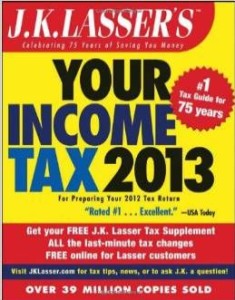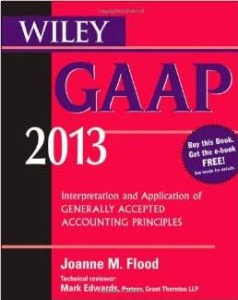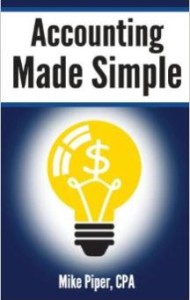If you’re looking to brush up on your accounting skills because of a promotion or a new job, or if you want to apply principles of good accounting to your personal finances, reading accounting books is an excellent place to start.
Self-directed reading is a great way to learn about the subjects that interest you most, and it offers a cost-effective alternative to enrolling in formal accounting classes. With those benefits in mind, here are three hot titles in the world of accounting books to consider adding to your reading list:
- Your Income Tax 2013 by J.K. Lasser. J.K. Lasser is one of the country’s most popular and enduring writers on the topic of personal accounting, and he’s back to help you with your income tax preparations. With a thorough explanation of up-to-the-minute tax laws, the book helps you make the most of every possible deduction and put more money back in your pocket. There is also a companion edition, specifically designed to meet the tax filing needs of small business owners. Both editions also offer links to the essential tax forms you’ll need to complete your submissions on time.
- Wiley GAAP 2013: Interpretation and Application of Generally Accepted Accounting Principles by Joanne M. Flood. An ideal companion for the researcher or accounting professional, this book offers a comprehensive
 explanation of the features and applications of generally accepted accounting principles or “GAAP,” in accessible language that is suitable for readers of all skill levels and educational backgrounds. The book’s readability and usefulness are both heightened by the plentiful use of sensible, easy-to-understand and comprehensive real-world examples.
explanation of the features and applications of generally accepted accounting principles or “GAAP,” in accessible language that is suitable for readers of all skill levels and educational backgrounds. The book’s readability and usefulness are both heightened by the plentiful use of sensible, easy-to-understand and comprehensive real-world examples. - Accounting Made Simple: Accounting Explained in 100 Pages or Less by Mike Piper. This helpful book explains important accounting principles, including the “accounting equation” and the preparation and interpretation of financial statements, in plain layman’s English. It is an ideal resource for the beginner or intermediate reader who wants a better understanding of accounting without technical terminology, or for the accounting professional in need of a quick refresher.

Think back over your own experience with accounting books. Are there specific titles which made a strong and lasting impact on you? Which ones and why? If you haven’t read any accounting books but you deal with finances, budgets and accounts in your day to day life, now is a great time to start.





